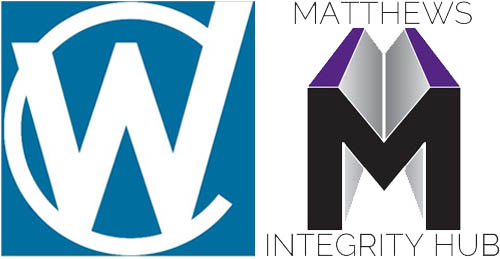A Typical Day in the Classroom
The challenge
We’ve all been there…the sinking feeling when, at the start of a training course, you enter the room and a thick manual containing copies of hundreds of slides containing thousands of bullet points is waiting for you on the desk. The course lecturer then puts the first slide up on the screen …..and starts to recite the bullet points one by one. You sit there resigned to several days of the same unchallenging stuff, interspersed, perhaps, with the odd stock photograph and semi-relevant story from many years ago.
The first thing you’ll notice when attending a Wilkinson Coutts training course is that this is not the way we do it. Here’s what we believe:
- The teaching efficiency of death-by-slide presentations is less than 10%. We believe trainers that use this method do so not because it helps the delegates, but because it is easy for them.
- The predictability of working through multiple slide presentations makes long training courses tedious.
- On slide-based courses, most delegates watch passively and don’t engage that much. They may think they have learnt, but in reality, 90% of what they see will not really register. Within a week after the course, it will be as if they hadn’t really been there for much of the training time.
 How we do it
How we do it
We start from the premise that it is our responsibility to run a training course with a learning efficiency of at least 75-80%. This means that delegates will achieve long-term retention of most of the course materials and will be able to use it in practice, rather than just recall it as a stream of facts. Because about 75% of our training scope is related to pressure equipment, we have developed training methods that fit well with the codes /standards and technical aspects of the subject.
Your trainer
We have simple rules for choosing the trainer who will face you on a training course with Wilkinson Coutts. These rules exclude many trainers who would like to work for us, and we are happy with that. Before acting as trainer on one of our courses, our trainer is required to:
- Accept full ‘ownership’ of the course material, not muddle through claiming the material was prepared by someone else
- Understand fully (100%) the course material they present… not 90%, or 50%
- Have the industry experience to ‘talk around’ the course material, extending the technical explanations as far as their delegates wish to go
- Answer all questions they are asked, either immediately, or with a little looking-up

It’s a simple enough method, and forms the basis of the guarantee that we offer to delegates that their trainer will understand their industry and what they need to know in their job role, as well as just the course material they are presenting. If you find a Wilkinson Coutts trainer does not meet up with these expectations, we would expect you, the delegate, to be chasing us for a refund.
We plan the course scope to fit the delegates
All training material we use is written by us. We are not interested in buying, borrowing, copying or using anyone else’s.
None of our courses are presented the same. We have an outline technical scope related to the subject of each course we offer but the final tailoring is done as the course progresses. We therefore start by finding out what the delegates need to know. For API exam-based courses clear boundaries are set by the published body of knowledge for the exam, but within this there are several different course plans that we use. For example, even with mixed-ability delegate groups there are different emphases that we will decide to use, depending on their abilities and performance on the preparatory on-line training modules we use.
For in-house courses that are not exam-based then we have more freedom to shift emphasis between subjects as we see what knowledge delegates need, and what their abilities are. For most courses we will commonly come prepared with at least twice the course material we will need to fill the agreed course duration, so we can choose the most relevant as the course unfolds. As a delegate you can therefore expect training from Wilkinson Coutts to be more relevant to you, than you’ll get from ‘fixed scope’ training providers
As the course commences
Our daily training schedule is divided into modules. Each module addresses a single subject, lasts about 1 hour and starts with verbal explanation of the subjects for that module. You won’t see many PowerPoint slides used; we might use them to show some photos or pictures retrospectively but we don’t believe in their efficiency as a mainstream training aid. The trainer will explain things using flipchart drawings but will rely heavily on delegates listening actively to the verbal explanations over 15-20 minutes. Delegates can ask questions at any time during this period.
The trainer will not treat the session as one-way communication. All delegates will be asked questions, at some point, designed to see if they are following the explanations. We expect delegates to answer these questions themselves, rather than rely on their colleagues to help them.
The verbal explanation sessions are followed by classroom questions. Delegates may be asked to write down bullet points, try a calculation or look up a code-clause of similar to find an answer. We use multiple-choice questions for some courses but they are carefully worded to make you think, rather than just choose some obvious ‘all of the above are correct’-type answer. One feature of the question sets we use is that we present questions singly or in small groups…hence there is no danger (or opportunity) for delegates not to participate fully in the exercises.
Here is our approach again in summary. It’s much the same whatever the subject:
- We write all course material we use.
- We set the scope to suit you
- We communicate with you
- We show you
- You do examples
- We debrief and check you’ve got it
Course Timings
 The timing of our courses is chosen to match the subject. For the most straightforward courses our normal finish time is 4pm, as this best meets the delegates’ active attention span. For API exam-based courses, the
predetermined workload requires some later finishes. If this is necessary the extra training modules are interspersed with suitable breaks. Homework assignments are used for all API-cert courses as this is an important part
of the training method we used. Delegates are expected to complete these and be ready for the debriefing session the next day.
The timing of our courses is chosen to match the subject. For the most straightforward courses our normal finish time is 4pm, as this best meets the delegates’ active attention span. For API exam-based courses, the
predetermined workload requires some later finishes. If this is necessary the extra training modules are interspersed with suitable breaks. Homework assignments are used for all API-cert courses as this is an important part
of the training method we used. Delegates are expected to complete these and be ready for the debriefing session the next day.
For complex courses (such as API-cert and ASME L2/L3) we will vary the length and timing of each training module in response to the individual and collective abilities of the delegates in the class. This won’t necessarily be obvious to you as a delegate but it ensures that you should feel fairly comfortable with the speed of the course, as long as you keep up with the proceedings. It’s also why we don’t necessarily publish hour-by-hour course timetables in advance of the course, like some trainers do.
 Daily progressions
Daily progressions
Why do we require that delegates attend all of the scheduled days of our training course they attend? It’s because our courses develop their technical content and arguments from day-to-day as the course progresses. Plant integrity is a subject encompassing lots of related disciplines: design, materials, welding, NDE, damage mechanisms, FFS evaluation techniques [LINK], codes and standards, and others. This means that the subjects we teach you are cumulative; they have to build on each other before you can understand them enough to use them. That’s why we, and you, need your full-time attendance on our courses.
What we need from you
The main thing we ask our trainees to bring along with them into the classroom is the willingness, and desire, to learn. This is as important as bringing whatever codes, documents etc we ask you to bring for your course. We need your willingness to learn to be able to work with you, and teach you what you need to know to help your career along.
Remember that our prime aim is to provide you with a training course that will enable you to pass any exam linked to the course (e.g. API-certs). Hence the slogan that we use about Wilkinson Coutts Training; EXPECT SUCCESS. We also commit however to our target of 70-80% long-term retention rate for information we provide to our delegates
We know well that we are in the career development business, and we can only help you if you help us. This means your being curious about technical subjects, codes etc that surround the field of plant integrity, not just the ones that you meet in your current job role.
Expect success
We are proud of a 95%+ % first-time pass rate on our API cert exam preparation courses. The ASME Plant Inspector course has similar performance. We see it as is our responsibility to get you through.





